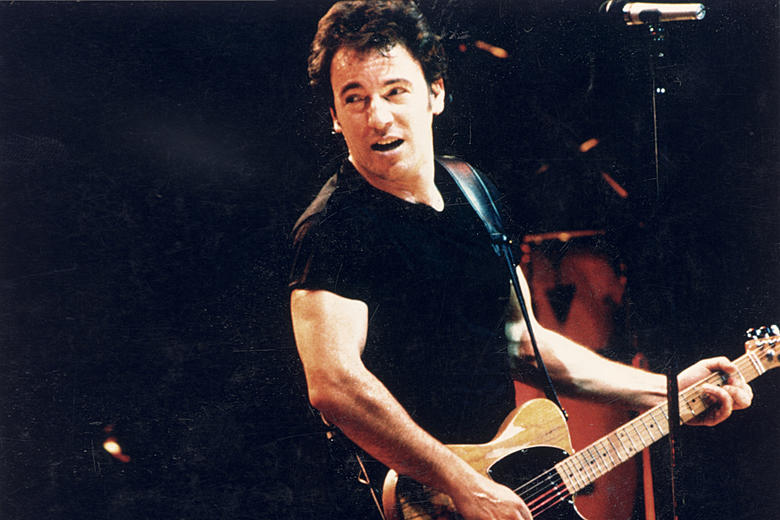wherearewegoing.net – In the pantheon of rock and roll legends, few figures loom as large as Bruce Springsteen. Known affectionately as “The Boss,” Springsteen’s impact on the music industry, particularly during the 1980s, is immeasurable. His ability to blend heartland rock with poignant storytelling and energetic performances has cemented his status as one of the greatest rock stars of all time.
The 80s: A Decade of Dominance
The 1980s were a transformative period for Bruce Springsteen. Emerging from the shadows of the 1970s, where he had already established a loyal fan base, Springsteen exploded onto the mainstream rock scene with a series of albums that would define the decade. His music, characterized by its anthemic quality and lyrical depth, resonated with a generation grappling with the complexities of life in the Reagan era.
Born in the U.S.A.: The Album That Defined a Decade
The pinnacle of Springsteen’s 80s dominance was the release of his seventh studio album, “Born in the U.S.A.,” in 1984. The album, with its iconic cover of Springsteen in a tank top and jeans against a backdrop of an American flag, became a symbol of the decade. Producing seven Top 10 singles, including “Dancing in the Dark,” “Born in the U.S.A.,” and “Glory Days,” the album sold over 30 million copies worldwide and remains one of the best-selling albums of all time.
The E Street Band: The Heart of Springsteen’s Sound
Central to Springsteen’s success was the E Street Band, a group of musicians who brought his songs to life with a level of passion and energy that was unmatched. The band’s dynamic performances, whether in stadiums or on television, were a key component of Springsteen’s appeal. The chemistry between Springsteen and the E Street Band, particularly with saxophonist Clarence Clemons, became legendary, embodying the spirit of rock and roll.
Themes and Influence
Springsteen’s music during the 80s tackled a range of themes, from the working-class struggles that had defined his earlier work to more personal reflections on love, loss, and the American Dream. His ability to articulate the hopes and fears of everyday Americans earned him a devoted following and the nickname “The Boss,” a testament to his leadership both on and off the stage.
Springsteen’s influence extended beyond music. He became a cultural icon, his image and music synonymous with the era. His concerts, often marathon affairs that celebrated the communal experience of rock and roll, became legendary. Springsteen’s commitment to his craft and his fans set a standard for what it means to be a rock star.
Legacy
As the 1980s gave way to the 1990s and beyond, Bruce Springsteen continued to evolve, exploring new musical directions while remaining true to the themes and sounds that had defined his career. His status as “The Boss” of the 80s rock scene is undisputed, a testament to his talent, hard work, and the enduring power of his music.
Bruce Springsteen’s legacy is not just in the records he sold or the awards he won, but in the lives he touched and the way he captured the spirit of a generation. As rock and roll continues to evolve, Springsteen’s place in its history remains secure, a true icon whose music will inspire and move people for generations to come.
Conclusion
Bruce Springsteen’s reign as the Boss of the 80s rock scene was more than just a series of hit records and sold-out concerts. It was a cultural phenomenon that transcended music, capturing the heart and soul of a decade. Through his anthemic songs, Springsteen gave voice to the aspirations and frustrations of a generation, cementing his place as one of the greatest rock stars of all time.
